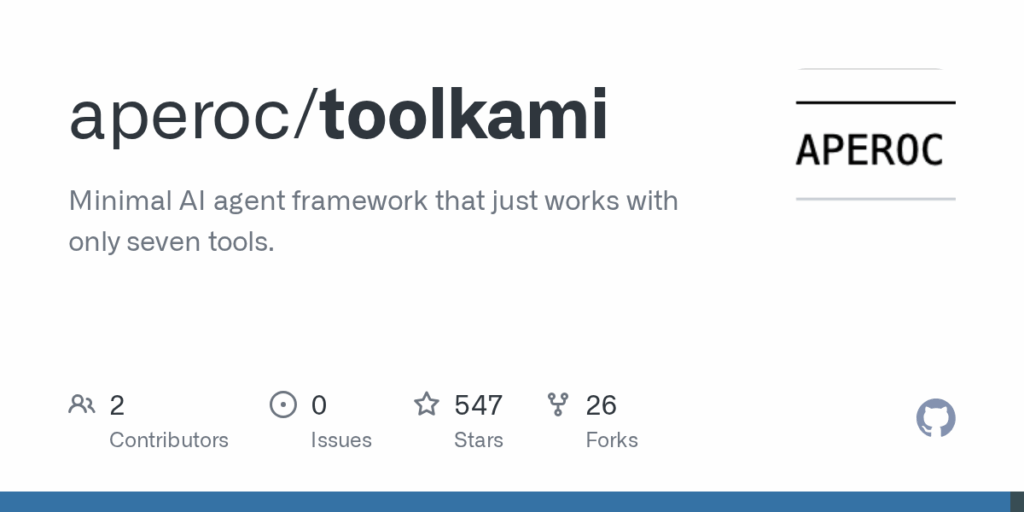toolkami
Basic Information
Toolkami is a minimal, Python-based AI agent framework for defining, running and iterating structured AI workflows using a small set of composable tools. The project centers on the idea of seven core tools (Ask, Browse, File, Shell plus three task-specific tools) and supports declarative workflow definitions in YAML as well as node-based visual editing for non-technical contributors. It includes a lightweight MCP server and self-executable client scripts to run agents, guidance for running in a development container, and instructions to install the UV runtime used to host the server and clients. The framework emphasizes autonomous and self-modifying agents via a Turbo mode and hot-reloading, and is compatible with OpenAI-style APIs including Anthropic. The README documents quickstart commands, environment file usage, troubleshooting tips, and an example use case implementing an AlphaEvolve-style agent.








